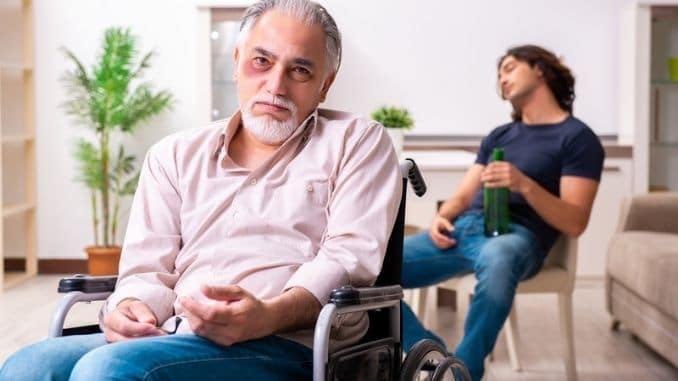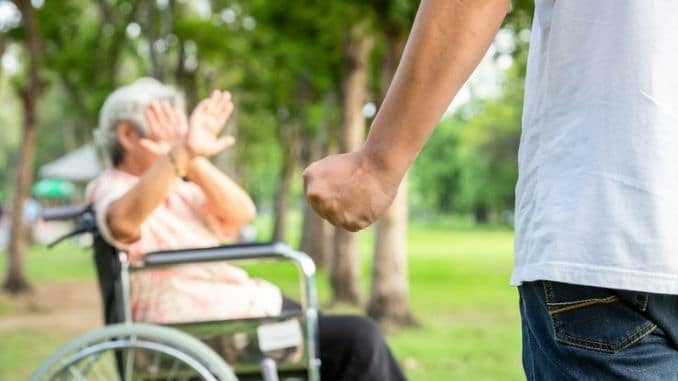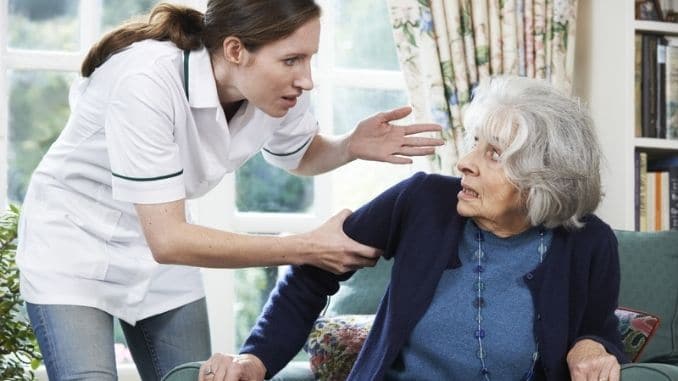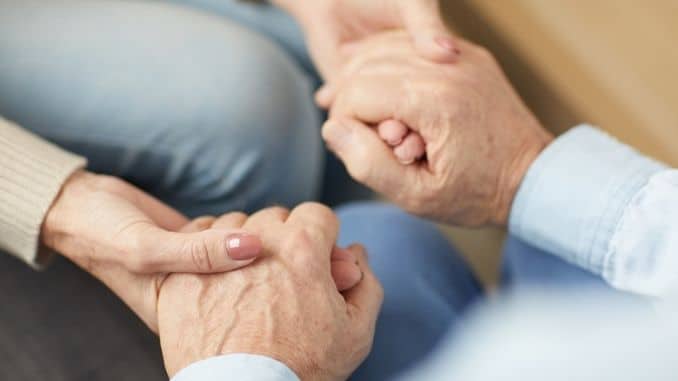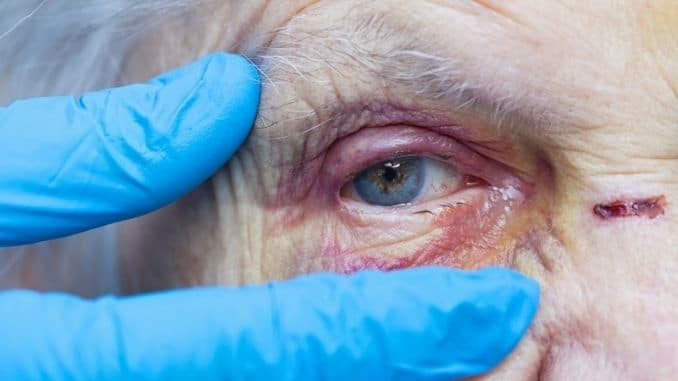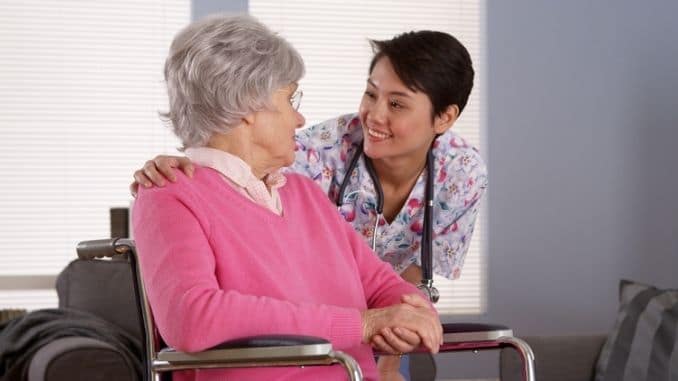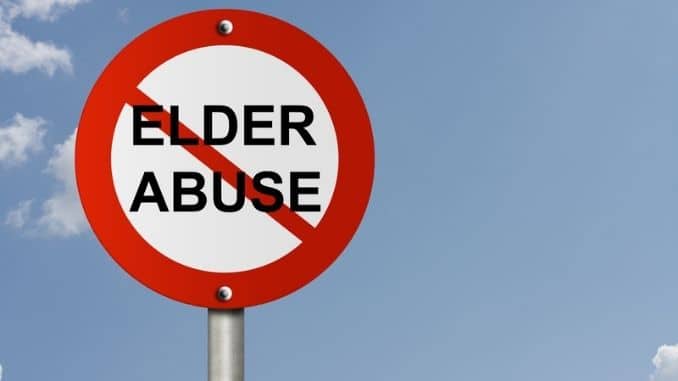
Our golden years should be a time when we can enjoy life with the ones we love. Unfortunately for many older people, it’s a traumatic time filled with anxiety and abuse.
The Nursing Home Abuse Center states that nearly one in 10 people over the age of 65 suffer from elder abuse every year. The National Council on Aging (NCOA) estimates that up to five million older Americans are abused every year, yet only one in 24 cases of abuse are reported to the authorities.
The Covid-19 pandemic opened our eyes to the possibility of elder abuse in nursing homes, but the issue isn’t limited to one type of location. If you are an older person or if you have an older loved one, it’s important to understand the signs of elder abuse and to know what steps you can take to stop it.
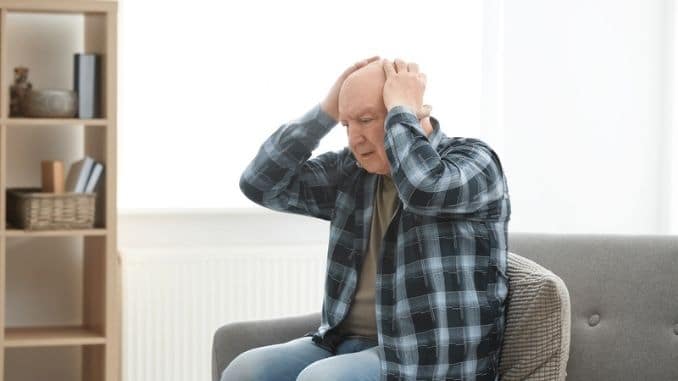
What Is Elder Abuse?
Elder abuse refers to any knowing, intentional, or negligent act by a caregiver or any other person that causes harm or a serious risk of harm to an older adult. Every state has some sort of laws to help prevent elder abuse, but they often fail to stop it from occurring.
Elder abuse includes these different kinds of abuse:
- Physical abuse: Someone inflicts physical pain or injury upon an older adult.
- Sexual abuse: Someone touches, fondles, or sexually assaults an older adult without that person’s consent, or when that person is unable to understand the interaction.
- Emotional abuse: Someone verbally assaults, threatens, harasses, or intimidates an older person.
- Neglect: A caregiver responsible for the person’s care fails to provide the appropriate necessities, including food, clothing, shelter, and medical care.
- Confinement: Someone confines, restrains, or isolates an older adult, other than for medical reasons.
- Financial exploitation: Someone misuses or withholds an older adult’s financial resources.
- Willful deprivation: A caregiver denies the older adult medication, medical care, shelter, food, a therapeutic device, or other physical assistance, exposing the person to a risk of harm.
It’s important to understand that abuse can come from any source. It may occur in an elder care facility, but it may also occur at home. Abusers may be professional caretakers, but they can just as often be family members. According to the NCOA, in almost 60 percent of elder abuse and neglect incidences, the perpetrator is a family member. Two-thirds of perpetrators are adult children or spouses.
Why Isn’t Elder Abuse Reported?
As noted above, many incidences of elder abuse go unreported for different reasons. Often, seniors don’t report the abuse themselves because they’re afraid their abuser will find out and retaliate, and they don’t feel strong enough to withstand that situation, or maybe they don’t have the resources to get away from that person.
Some seniors may feel embarrassed by the abuse and not want to share the details with other people, even their family members. Seniors with mental handicaps, such as dementia or those caused by stroke, may be unable to communicate well enough to tell others about the abuse.
Sadly, a 2010 study found that nearly 50 percent of seniors with dementia suffered from abuse or neglect. In a 2014 study, researchers found that psychological abuse was the most common form of abuse among older adults, with estimates of its prevalence ranging from 27.9 percent to 62.3 percent. Physical abuse was estimated to affect 3.5 to 23.1 percent of older adults with dementia. Many older adults experienced multiple forms of abuse simultaneously.
What are the Signs of Elder Abuse?
Since elder abuse often goes unreported, it’s important to be aware of the signs indicating potential abuse.
- Physical abuse: Bruises, pressure marks or sores, broken bones, abrasions, burns. Sometimes broken glasses/frames, hearing aids, or other broken belongings.
- Emotional abuse: Unexplained withdrawal from activities, unusual depression or mood changes, frequent arguments with a caregiver or other adult, sudden change in alertness or desire to be involved in activities. Symptoms of anxiety or confusion or signs of trauma, such as rocking back and forth.
- Financial abuse: Sudden changes in financial situations. Large withdrawals from a bank account. Strange bills or unexplained transactions.
- Neglect: Bedsores, poor hygiene, unusual weight loss, untreated wounds, unattended medical needs, malnourishment.
- Sexual abuse: Bruises or injury to the genital area, difficulty moving or sitting.
- Abandonment: A caregiver or other person responsible for the older adult’s well-being deserts or abandons them, leaving them to fend for themselves.
Who Is Most at Risk for Elder Abuse?
Though anyone can become a victim of elder abuse, data show that some people are at a higher risk of suffering from it:
- 80 or older: Research shows that adults over the age of 80 are more likely to suffer from elder abuse.
- Women: Women, in general, are more likely to suffer from elder abuse and may endure it for longer periods.
- In poor health: Seniors with dementia or serious physical health issues are more vulnerable to abuse.
- Isolated: Older people who live by themselves and are withdrawn may be at an increased risk for abuse by others.
- Have a suspect caregiver: Older people with live-in caregivers who are dependent on them for financial support, abuse drugs, or have criminal backgrounds are more likely to be victimized by these caregivers.
What Should I Do if I Suspect Elder Abuse?
If you suspect that you or a loved one may be a victim of elder abuse, here are some actions you can take.
1. Talk to the person.
Either do some reflecting yourself, if you feel you may be a victim, or talk to your loved one who you suspect is being abused. Note that it seems something is wrong and you’re worried. Offer to do what you can to help, such as take the person to another location, or contact your local adult protective services agency.
2. Talk to the person’s support system.
Other people who care about older adults may not be aware that any abuse is taking place. Maybe they live far away or were out of town when the abuse occurred. If you know these people and know that they care about the person, talk to them about your observations and share your concerns. This can help resolve the issues more quickly.
3. Remove yourself or your loved one from the situation.
If at all possible, fire the abusive caregiver, remove your loved one from the abusive facility, or otherwise get away from the abusive situation however you can.
4. Take care of any immediate needs.
If you or a loved one needs medical attention, get to the doctor immediately. Call 911 if necessary. Call a friend or loved one to help, and find support as soon as you can.
5. Gather information.
You are not required to prove that elder abuse is occurring. You can, however, gather the information that may help facilitate a faster solution. Take pictures of any bruises, wounds, or scars, and anything else that may be used as evidence. Talk to those who may have witnessed the abuse and get names and numbers if you can.
6. Report the abuse.
You can report the abuse through Adult Protective Services (APS), the police, or your local nursing home ombudsman. You can also call Eldercare Locator at 1-800-677-1116 who will refer you to a local agency that can help. Provide the authorities with a detailed report of what you’ve observed and any evidence you’ve gathered.
7. Cooperate with the Authorities
Once you’ve made the report, the authorities should investigate the situation and provide additional assistance. Adult Protective Services may assign a caseworker to your case to gather more information.
8. Consider a lawsuit.
If you or a loved one suffered serious injuries that have strapped you with additional costs, consider talking to a personal injury lawyer about filing a lawsuit. If you are successful in your case, it can help pay for medical bills, therapy, relocation costs, and other losses. It can also help make sure others are not abused by the same parties.
Is There a Way to Prevent Elder Abuse?
There are some things you can do to help prevent elder abuse:
- Educate yourself on the various types of abuse and stay alert for any potential signs.
- Regularly visit and communicate with any older adults that you care about so that you can observe what is normal for them and what is not.
- Research caregivers and caregiving facilities carefully. Ask for qualifications and certifications, and look online for reviews. Observe the person or the staff while they’re working. Watch for signs of frustration, drug or alcohol abuse, overworked staff, lack of skill or attentiveness, etc.
- As a senior yourself, stay engaged in your community. Seniors with strong friendships are less likely to be isolated and abused.
- As someone who cares about an older person, help them to stay in touch with their friends and loved ones. Provide transportation to community activities, and regularly bring others to visit (if possible).
- Stay as active and physically fit as you can as a senior, and encourage activity in those you care about.
- Be cautious of caregivers or friends who need financial help. This can lead to financial abuse. Always be wary of phone, internet, and email solicitations.
Awareness is key, so if you suspect that someone you love is being abused or neglected, don’t ignore the situation. Get involved, ask questions, and take the necessary steps to protect those who may not be able to protect themselves. If you, yourself, are a victim of abuse, find someone to talk to. You are not alone – there are people and services that can help you enjoy life again.
Learn the best ways to maintain your strength as you age, safely and naturally. Click here to learn more.

